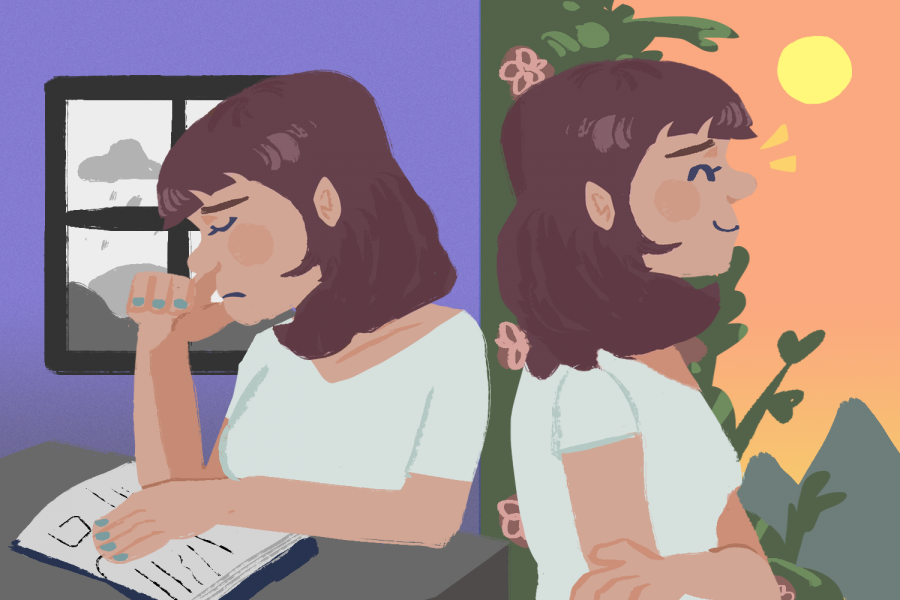Healthy Escapism
October 15, 2020
Escapism is the tendency to seek relief from an unpleasant reality, often through entertainment or fantasy. In the last few thousand years of human history, people’s access to information has increased exponentially. Every day we are exposed to an onslaught of data, from news and politics to social circles and the net. And whereas in the past humans would rest after hunts and recuperate after wars for a long period of time, today we are constantly worrying about people on social media, our paychecks and bills, our plans for the future, the world around us, and other always-present issues.
In many cases escapism is good. When your life is overwhelming, escapism is a good idea. It keeps you from burning out and improves your mental performance. So in a way, escapism helps you be more productive. It provides emotional relief. For example, crying after watching a sad movie can help you let out your sadness. Playing a fighting video game can help you take out your stress and anger. In moderation, escapism is a decent coping mechanism.
Most forms of escapism are healthy until they are taken too far. If you completely ignore your real life problems, they will most likely worsen. So ignoring your problems will give you some short term benefits, but ultimately may leave you with a reality more difficult to ignore.
Then how can a person find relief from their real life problems without growing too distracted? For one, you could find relief not in entertainment but in reflection. Find a way to think about your life that is peaceful and unhurried.
Senior Andrew Wang said, “Sometimes I play video games to relax. But if I want a break without ignoring my problems, I go on a walk instead. It’s corny, but going outside for a walk helps me lower my stress levels and think about the future in a way that doesn’t make me anxious.”
Alternatives include laying down to think and meditate.
Some forms of escapism that are not advisable include drugs, alcohol, shopping, gambling, and other similar types. Healthy means of escape don’t come at a detriment to yourself. They include social interaction with friends and family, reading books, moderate exercise, drawing, writing, and napping.
If you do choose to engage in escapism through activities like reading, music, or games, avoid growing too distracted by setting limits for yourself.
Junior Sylvie Thompson said, “I like to just lay down and listen to music when I’m tired. I check the length of the playlist I use before listening to it. When the playlist ends, I know I should get back to doing my work.”
For activities like video games or social media, it is possible to set time limits for yourself using an app or a timer. For activities like reading, tell yourself or write down a reminder that you’ll stop at a certain chapter or page.

